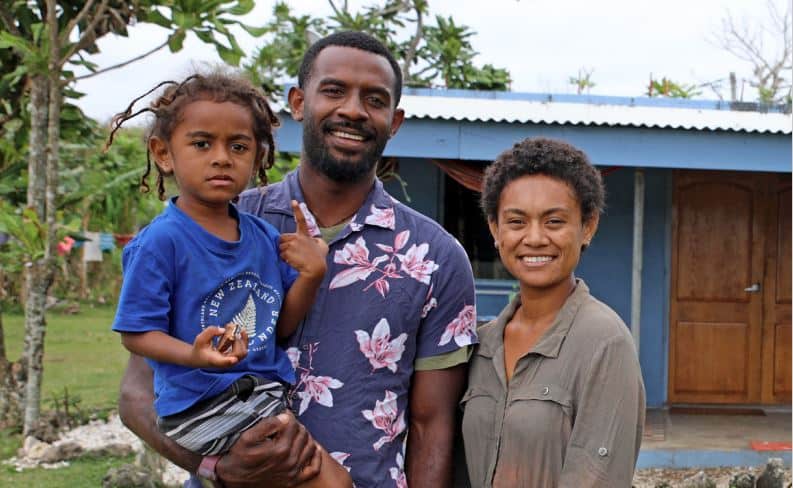There has been much discussion about how the rapidly expanding labour mobility programmes in Australia and New Zealand have affected lives in the Pacific. Many have pointed to the significant economic benefits to Pacific islanders, such as being able to earn much more abroad than at home. On the other hand, some are raising concerns about the toll of separation on families, instances of worker exploitation, and the risk of Pacific island countries losing their skilled workers. Recent changes in the programs add complexity to these contemporary issues.
This is a critical moment for labour migration in the region, as sending and receiving countries consider what policy shifts, if any, might be needed to address concerns.
Although anecdotal evidence exists, what has been lacking in this conversation is comprehensive and updated data and rigorous research from an independent and qualified third party.
In light of this, we have released a new joint study between the Development Policy Centre and the World Bank, The Gains and Pains of Working Away from Home, based on a large survey of those directly affected by labour mobility: Pacific migrant workers, their households and their communities.
The Pacific Labour Mobility Survey is the first major collection of data since the introduction of the Pacific Labour Scheme in Australia. Conducted between November 2021 and March 2023, the survey includes more than 2,000 workers in the Recognised Seasonal Employer (RSE) scheme and the Pacific Australia Labour Mobility (PALM) scheme plus more than 4,200 households (with about 25,600 household members in total) in Kiribati, Tonga and Vanuatu.
Findings from the survey challenge some popular misconceptions and demonstrate that these programs are seen as overwhelmingly positive by participants and their families.
Overall, the labour mobility schemes have brought net positive impacts, both economic and social, to workers, their households, and communities. This finding alone suggests that reforms to support the further growth of these schemes should be prioritised, and that policy changes which might compromise this success should be approached with the utmost caution.
Most workers are very satisfied with their experience in host countries , and the schemes are widely perceived as beneficial by both participating and non-participating households. Importantly, there is no evidence of any decline in worker satisfaction relating to the pandemic, recent growth in the scale of the schemes, or the many ad hoc policy changes which were made during this period, suggesting that these turbulent times have for the most part been well managed.
That participants earn significantly more than they would at home is well known. Less well known is the scale of these gains, which our new data help clarify: between three and four times pre-departure earnings for Tongan workers and up to 10 times pre-departure earnings for ni-Vanuatu workers. On average close to 60 percent of their earnings can be saved and sent home. This suggests that rising cost-of-living concerns in host countries do not appear to have put a brake on the economic attractiveness of the schemes or the net benefits derived from them for workers or their families back home.
The survey also suggests that participation in labour mobility schemes generally strengthens family relationships, empowers women and shifts gender-related norms. About four in five surveyed workers reported improvement in their relationships with their children, and two-thirds reported improved marital relationships – findings that challenge commonly held assumptions about the impacts of family separation.
The survey also highlights several issues that need to be addressed, including areas of worker dissatisfaction – often related to earnings; not meeting expectations and excessive or non-transparent salary deductions; workers’ demand for portability and flexibility; and pressure on families due to the absence of workers. Our new report offers practical suggestions to help address these challenges.
The World Bank also conducted a complementary qualitative study to shed light on gender and social dimensions of labour migration in the region. The study is based on more than 450 in-depth interviews with migrant workers, their families, community members, government officials and those involved in the recruitment process. This exercise for the most part reaffirms the survey findings described above, while examining in more depth concerns about those left behind, the complexity of the recruitment process, unexpected pay deductions and pressures on family relationships.
Historically, women’s participation in labour mobility programmes has been limited, with women constituting around 13 percent of participants. Barriers highlighted by participants in the study include the need for approval by family members, unfavourable community attitudes rooted in traditional gender roles, and the fact that some employers and recruitment agents simply prefer to hire men. Women interviewed also mentioned issues related to shared living arrangements, personal safety, and healthcare. Again, the reports offer practical suggestions to help address such challenges.
Now is a moment of opportunity. This new data provides powerful insights and evidence to support the growth of, and reforms to, labour mobility programs to deliver even larger gains for families, communities, and Pacific countries.
The Pacific Labour Mobility Survey will continue to gather information on the same variables from the same people in future rounds of data collection. This offers us the chance to continue capturing their stories over time. The data will be made publicly accessible so that they can be used for analysis and to help inform policy decisions for years to come…PACNEWS
Dung Doan is an economist in the World Bank’s Social Protection and Jobs team, focusing on jobs and labour market issues in the Pacific region.
Matthew Dornan was formerly Deputy Director at the Development Policy Centre and is currently a senior economist at the World Bank.
Ryan Edwards is Deputy Director of the Development Policy Centre and a Fellow at the Crawford School of Public Policy. He leads Pacific migration research under the Pacific Research Program at the ANU.
The opinions expressed in this article are those of the author and do not necessarily reflect the opinions of this publication.
